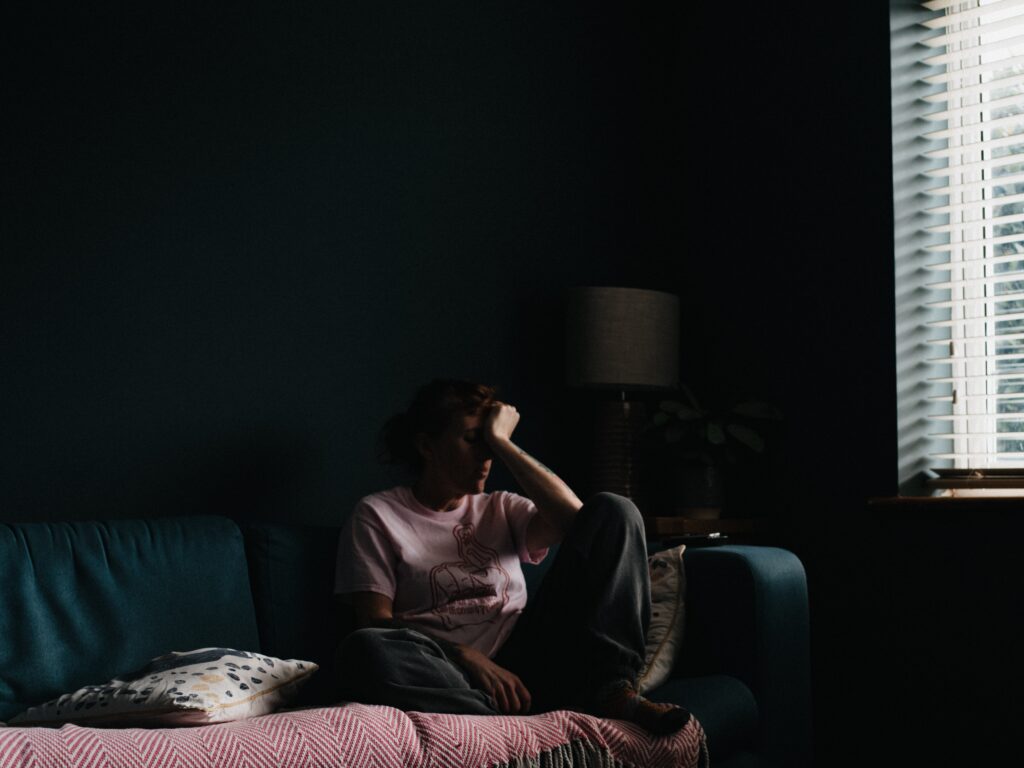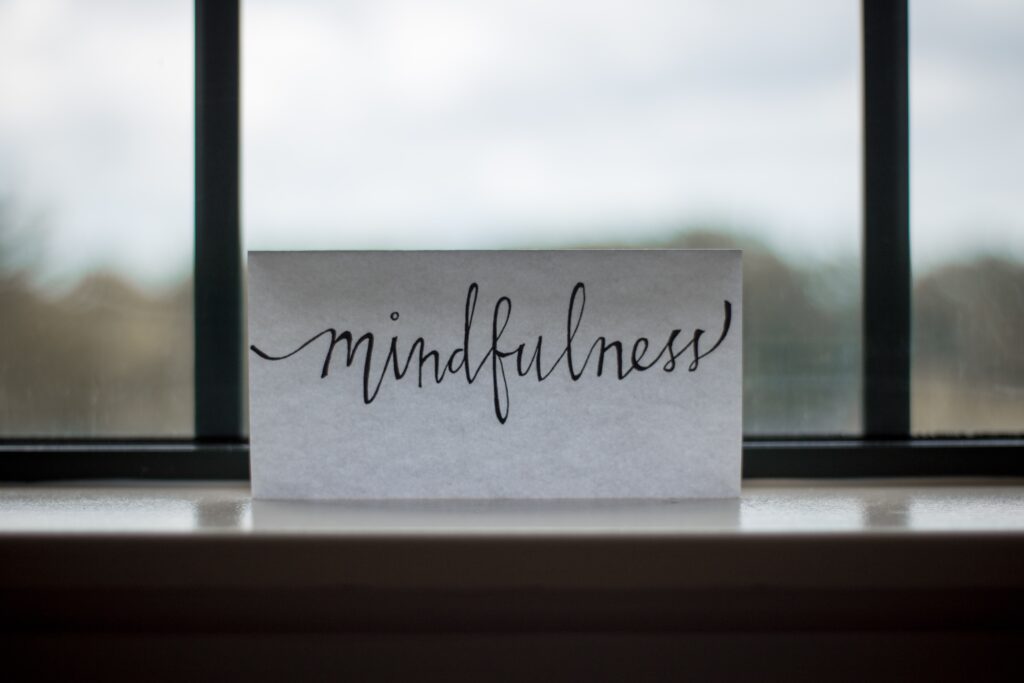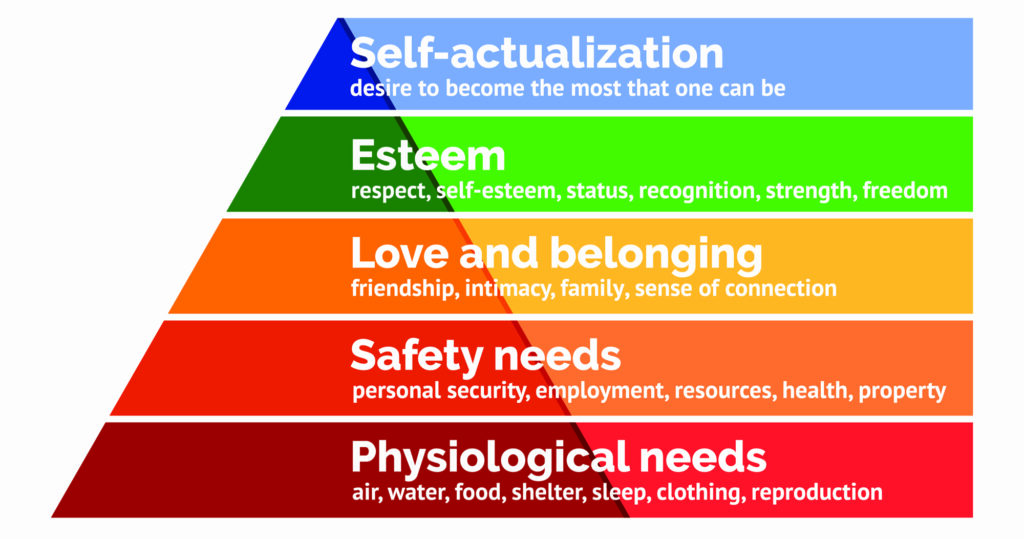The human experience is made of ups and downs and whether you’re experiencing difficulties in your personal life or in a collective situation, what really matters is that you’re capable of staying still and resilient without losing yourself. Here is what you can do to get your life under control.
1. Talk to supportive people instead of isolating
This difficult moment may let you feel abandoned, angry and sad, and this range of negative emotions often makes us feel the need to isolate completely and overthink things alone. But what you really need is a change of perspective!
You don’t have to put a happy mask on and force yourself to interact with anyone, but self-isolation only makes you feel miserable. It’s crucial to talk about the situation and welcome the possibility to get a different point of view and the emotional support you need. You could find deep connections and support on these platforms:
Improspeak: find your supportive tribe

Improspeak is a solid app where you can talk and share your thoughts and feelings in a community of like-minded people.
The algorithm of Improspeak will match you with someone based on your shared interests and the topics you want to discuss, then you can start talking and get to know each other.
If you don’t know what to say or struggle to find topics to talk about, Improspeak gives you question cards that you can use to keep the conversation going.
A unique aspect of Improspeak is its way to keep moderation: after each chat, you will be able to rate your conversation buddy. This system keeps the community a safe space to build connections.
On this platform, you could learn that you’re not alone in this, and you can build meaningful connections with open-minded people.
Hear Me: empathy not therapy

HearMe is a safe space to talk about your struggles with professional listeners who understand what you’re going through.
In a few minutes, you will be connected to a Listener in confidential chats, where you can fully express yourself and feel understood.
The app also gives you podcasts and resources to listen to and exercise by yourself.
2. Take the wheel of your thoughts

A hard time may happen to many people in our lives and go unnoticed. Don’t beat yourself up for what you’re going through, and accept what you’re feeling.
Allow yourself to feel what you feel, don’t judge and accept these thoughts as they come and go. If you suppress your feelings, they will get bigger and find a way to come out, so just let them flow through your mind and body.
You may think that suppressing your emotions and avoiding these feelings is the logical way to cope, but this is unhealthy and it’s probably the way to make things escalate from a long term point of view.
Consider mindfulness and journaling to express your thoughts and emotions. This practice could make you notice how specific thoughts repeat themselves and if they’re correlated with specific triggering times or situations.
Take control of this pattern and change the situation.
If you struggle to be consistent with this exercise and keep track of your thoughts, valuable apps can help you with daily reminders and specific activities. You can look at these apps to help you manage your attitude and plan your next step.
Once you allow yourself to feel your negative emotions, you should take action on what you can change about the situation and the first thing you can control is your attitude towards the problem.
7. Leave the “race to success” view

Breaking news: this is not a race. Life is about who you are as a person, not about what you have and which accomplishments you achieve. You’re not failing and most importantly, you’re not a failure. Difficulties happen to everybody and it’s not a big deal as your negative thoughts want you to believe.
We are constantly exposed to others’ content about their life. Still, we should remember that the perfect pictures we see on social media are accurately constructed and selected, sharpened and modified to look like that.
Difficulties are normal in the ups and downs of life, it’s a collective experience. But people won’t show the raw reality of their worst moments, especially online.
People only show what they decide to reveal about their life, but we assume they’re happier, richer, prettier, smarter than us just by looking at their profiles.
Excessive use of social media is related to negative feelings like loneliness, inadequacy, anxiety and depression.
We should stop and ask if social media is making us feel bad about ourselves and consider limiting our use. You don’t really know what is going on in other people’s lives behind closed doors, so don’t fall for the lie that their grass is greener than yours.
Furthermore, some pages and creators try to demystify social media fakeness by showing the reality behind perfect pictures. An example is beauty.false on Instagram, or pages that help you navigate negative feelings and overcome loneliness or anxiety.
3. Accept your bad days: you’re surviving

Accept that you’re not supposed to give 100% and “function” perfectly every day of your life and there will be 60% days as well as 4% ones because you’re human and life is not the same every day. Allow yourself to just survive your 4% days. Acknowledge this difficult time but remember that it’s not going to last.
We could experience mental burnout if we overwork ourselves in this false “race” vision.
A couple of years from now you will probably laugh about how big this situation used to seem, or maybe you will inspire other people with your story. What can this time teach you and how can it transform you for the better?
Practice acceptance and gratitude and don’t judge yourself. Remember, you’re not lazy, you’re not a failure; you’re surviving a bad time and eventually, it will pass.
5. Listen to your body and slow down

If you’re dealing with difficulties you may experience overwhelming feelings. Too much chaos leads to brain fog, so if you don’t see solutions to your problems you should take a break from all the confusion to see things from the right perspective.
Think about what you need physically and mentally, and start doing little things for yourself every day. If you’re feeling numb, think about things that used to make you feel joy and start by doing little steps.
Remember that there is no pressure to complete tasks or to be productive. Just do what makes you feel calm.
Pick a time during your daily schedule to dedicate to yourself and your peace of mind. You can do something simple like meditating, reading a book before you go to sleep, taking a warm bubble bath, cooking your favourite dish by yourself, watching your favourite movie.
Your body is doing too much for you, so here is a breathing exercise you can do whenever you feel stressed: Breathe in for four seconds, hold your breath for four seconds, and breathe out for six seconds. Repeat this exercise until you feel calm again.
6. Be honest about your situation with your community of caring people

Be honest with your feelings and reach out to your friends and family. There’s no shame in asking for help if you’re struggling by yourself.
Maybe you could ask a friend to call you or text you when you’re feeling bad so that you don’t overthink alone.
These negative thoughts make you think you’re the only one not achieving accomplishments, that people are better than you, or they don’t like you and believe you are a burden.
But that’s just the pressure talking, and it doesn’t match the reality at all. If you get to listen to your friends’ thoughts, you will see that they all feel the same sometimes.
Your brain only lets you see one way of thinking, and it’s dark and negative. Challenge your head and give yourself a new perspective by talking to friends and family. You are not alone, and you are loved and important.
4. Give it a break and the solutions will come

To “function” properly, we have different levels of needs, as explained by the psychologist Maslow in his famous pyramid scheme.
At the bottom of our needs, we have basic physiological ones like breathing, sleeping, eating, libido, homeostasis. To satisfy higher needs such as safety and self-esteem, we need to meet the basic ones.
Mental health issues have a significant impact on our physiological state. If we’re having a mental breakdown, we can quickly notice changes in our sleep, food, and libido habits.

People suffering from depression, stress or anxiety tend to sleep too little or oversleep, so it’s essential to keep a healthy sleeping routine to get back on track.
Notice if your sleeping habits have changed and how you can take them back to normal. Maybe you feel anxious and overthink at night, preventing yourself from falling asleep. You could try to do relaxing activities before you go to bed, such as a warm shower or a cup of relaxing herbal tea.
Avoid using the phone right before sleeping because the screen’s blue light keeps you awake. Be mindful of the food you consume before sleeping that could keep you awake, such as caffeine.
You can set a time to go to sleep, help yourself with specific apps like these ones, or even do some relaxing meditation or ASMR.
Find what relaxes you and treat yourself!
8. Keep a clean space and a clean mind

Think deeply about your life: your job, your friendships, your habits and everything that comes to mind. Then ask yourself if those things make your life better in a long term effect. Is the current direction you’re taking the right path for you or there’s something you want to get rid of?
Your physical space can totally affect your emotions and your thoughts. Keep your space fresh and clean, and your mind will become cleaner too. It simply starts with opening a window to let fresh air in, making your bed and vacuuming your room.
Try to imagine what the ideal state of your space looks like, but also what the ideal life looks like to you. What the ideal version of you would do as a daily routine? Which steps keep you distant from this version and what can you do to make it your current reality?
It only takes one step to be closer to the best version of you. If you struggle with this process, you may look up the Konmari method. Marie Kondo, the creator of this method, lets you get rid of things that don’t bring you joy instead of focusing on the clutter itself.
Once you start asking yourself “does it bring me joy?” you will begin to reflect upon your life decisions as well, not only the clothes you have in your closet.
10. Every problem seems small when you’re in nature

Spending some time in nature has a lot of benefits for your health. It can make you feel connected to the world and put things in perspective: you are not alone; you are part of this ecosystem like everyone else around you. A walk in a park can have relaxing effects and improve your mental and physical health.
There is a professional treatment called ecotherapy which involves doing activities outside combined with physical activity and social contacts. It has been shown to help with mental health problems such as anxiety and depression.
Being outside in natural light can be helpful if you experience seasonal affective disorder (SAD), also called seasonal depression, that affects people during darker and colder seasons or times of the year.
If you can’t go out in nature, bring nature into your house! Activities like gardening or growing plants can teach you how to cherish these moments, and by taking care of them, you learn to take care of yourself too.
11. What you can do if you need an ally

If this bad situation persists for an extended amount of time and you are struggling alone, you should consider discussing them with a therapist.
We often think we can get through things by ourselves. You may feel that you are not struggling enough to get help or that other people have it worse than you.
But we don’t need it to be harmful to ask for help, and we deserve to get help as much as other people because we all struggle sometimes, and nobody has to keep feeling like this.
You wouldn’t say: “you don’t deserve to be happy; some people are happier than you”, so thinking you don’t deserve help when you’re not ok because someone has it worse is pretty much the same. Why should you stay feeling bad? It doesn’t have to be this way, and you can get better.
If you’re considering seeing a therapist, you can look up different therapy specialists based on your needs and find a therapist near you.
During the pandemic, we’ve seen the development of several online therapy services because of social distancing, so if you don’t want to move from home, you can still start a therapy session online on these platforms. Choose what is best for your needs and start getting better!
In conclusion
These are the best tips to overcome difficulties, be patient with yourself and remember that what you’re feeling is absolutely normal! Whether you’re feeling this because of a specific situation in your life or without an apparent reason, you can start feeling better with these simple tips.
Don’t be afraid to ask for help if you need it and take care of yourself!




